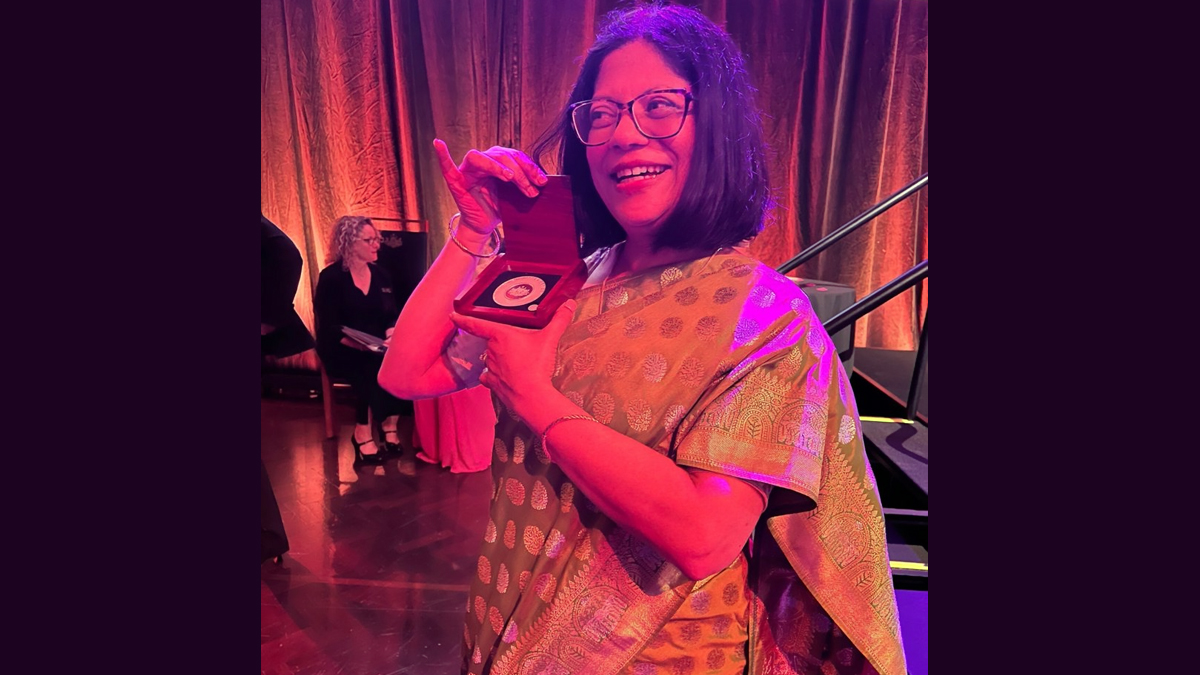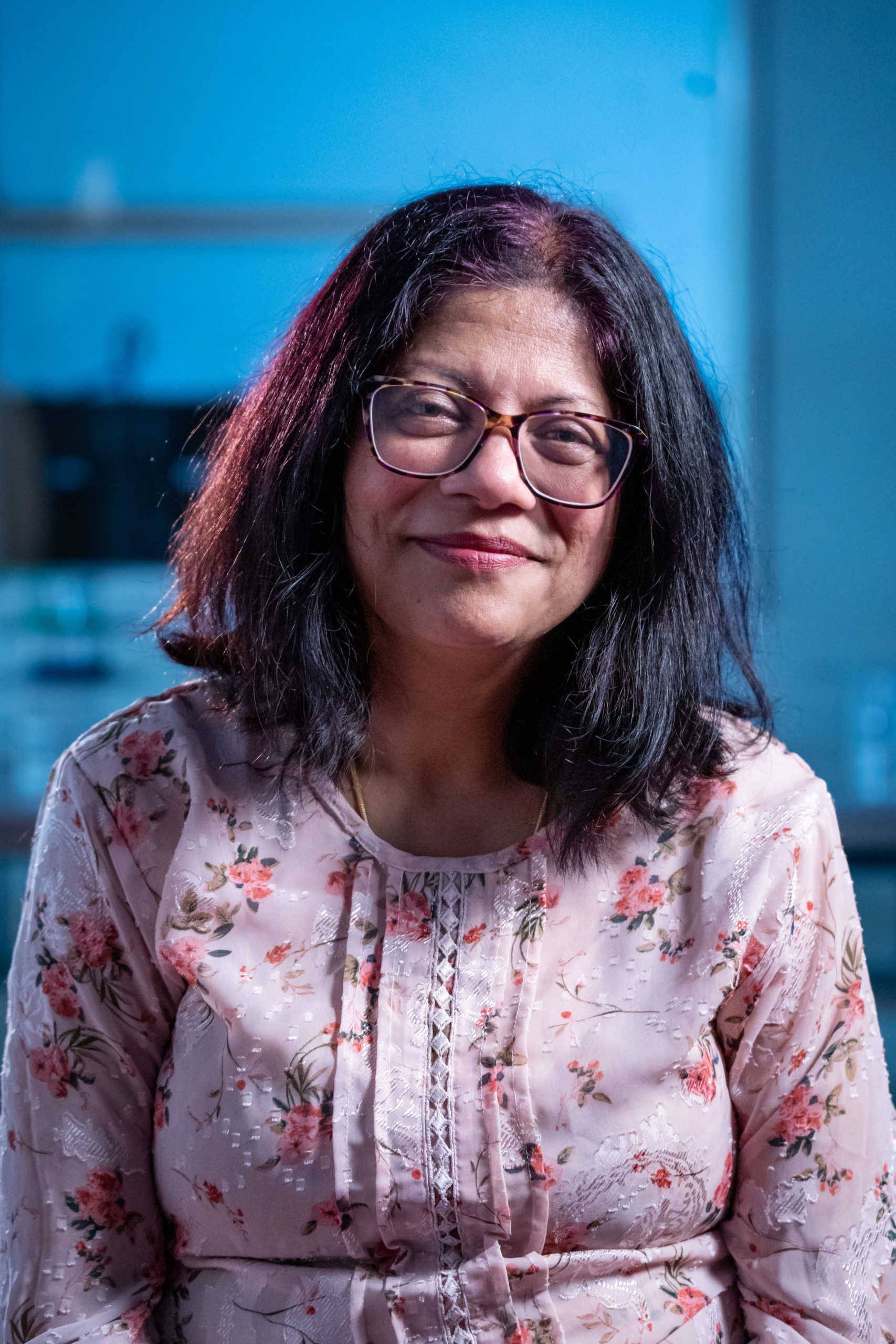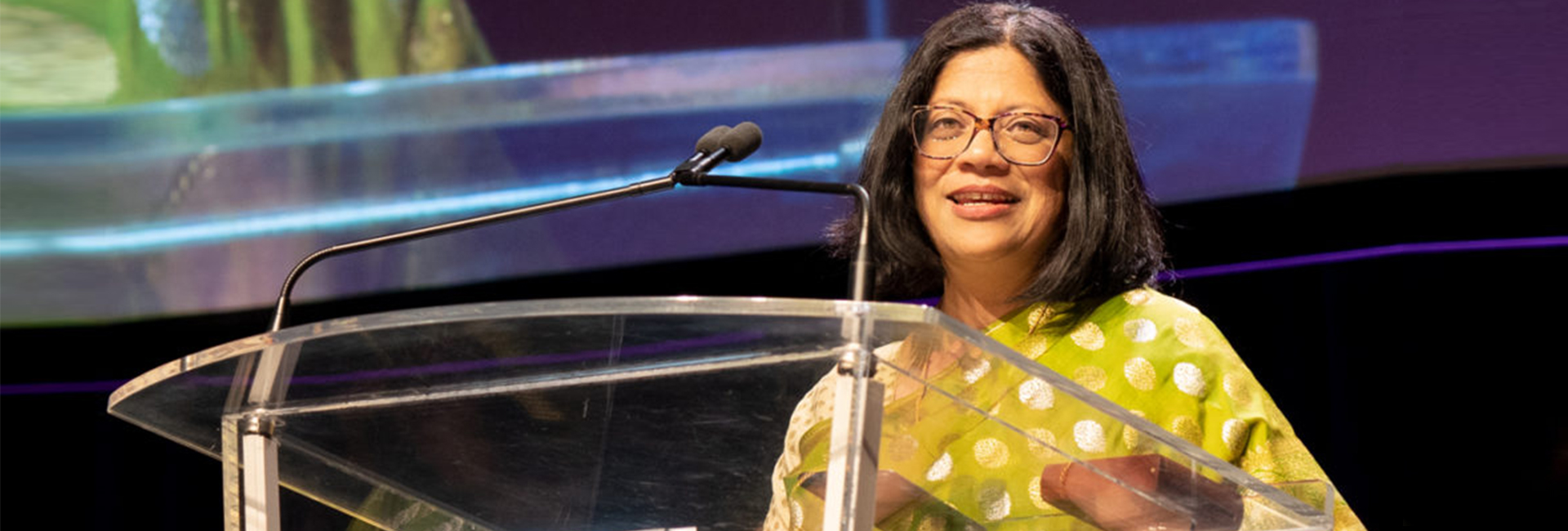(December 8, 2022) When Melbourne-based Veena Nair got a call from Australian Minister for Industry and Science, Ed Husic, she thought it was probably a scam. So much so that when she decided to call back thinking that he wanted to comment on one of her LinkedIn posts, she was taken by surprise when informed that she had won the 2022 Prime Minister’s Prize for Science. Just to be assured, the Indian-origin mustered the courage to ask, “Are you sure?” And sure, she is. The head of technology at Melbourne’s Viewbank College, Veena has been awarded for demonstrating the practical application of STEAM to students, and how they can use their skills to make a real impact in the world.
“To be recognised in the Prime Minister’s prizes for science, I am deeply humbled. I am very grateful to my school, to my colleagues, to my students, and my family,” Nair said in a video message, adding, “Many people know about STEM — science, technology, engineering, and maths, but STEAM is with an A, which is for Art. Art brings out-of-the-box thinking, and it brings in creativity because students need STEAM skills to innovate, to become resilient, and to take risks.”

Veena Nair has won the 2020 Prime Minister’s Prize for Science.
With 20 years of experience in teaching science-based subjects across India, UAE and now Australia, Nair is a leading educator in STEAM who “has endeavoured to develop student and staff capacity in new and emerging technologies like 3D printing and designing, wearable technologies, and social entrepreneurship based on UN SDG through the Young Persons Plan for the Planet (YPPP) program,” says her LinkedIn profile.
In fact, in the last two decades, Veena has helped increase the number of students who receive first-round offers to study engineering and technology at university, especially young women from diverse backgrounds.

Veena Nair is a Melboune-based science teacher.
After finishing her BSc in Physics and B.Ed in Science and Mathematics from the University of Mumbai, Veena began her teaching career in Maximum City, where she provided computers to low socio-economic schools and taught students how to code. This love for teaching then took her to UAE, and later to Deakin University in Australia for her M.Ed in Maths.
Veena, who currently teaches Systems Engineering at Viewbank College, says that the gender gap in STEAM is challenging for her. “My classes are currently 70-30 in favour of males; my goal is to raise it to 50-50. I work to get the fear out of the female students. Give it a shot, I tell them,” she told Indian Link in an interview. Interestingly, it is 3D printing that she has been using to initiate girls in science, and she says by making science fun and enjoyable, she is making more young women opt for the subject. “Every industry uses 3D, I tell them; try it, it’s a skill you can use whatever workplace you find yourself in,” the Global Indian added.
However, it’s Superstars of STEM – a program – that’s closer to her heart as it gives a platform to selected science personalities trained as ambassadors to regularly present on stage or in schools. “Representation matters and we have some wonderful role models from our community – Madhu Bhaskaran, Onisha Patel, Veena Sahajwalla. They are great inspirers towards science, for our girls especially,” said Nair who was awarded the Educator of The Year Award by the Design and Technology Teachers’ Association of Australia. Nair also supports the Young Persons’ Plan for the Planet program, a STEM-based enterprise development program that allows students to engage with the UN’s Sustainable Development Goals as changemakers at a global level.
Nair believes teachers should “bridge the gap between curriculum and pedagogy” and encourage students to take up science by connecting with new technology. “Students are already tech-savvy, and if you don’t provide the new platforms, they won’t engage,” she added.
- Follow Veena Nair on LinkedIn




